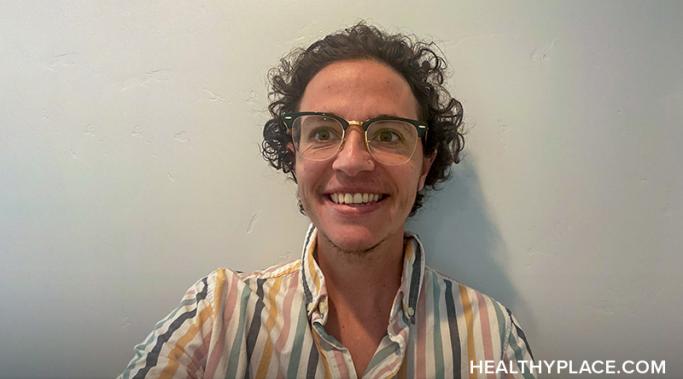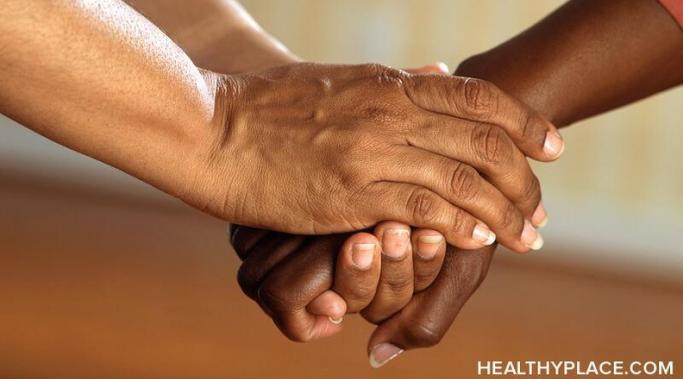Blogs
The borderline personality disorder (BPD) favorite person dynamic is a double-edged sword, offering deep connection but also leading to emotional volatility and a struggle for independence. For me, having a favorite person means elevating someone to a pedestal, be it a best friend, lover, or family member. It's an all-consuming experience that can leave me feeling both exhilarated and overly vulnerable.
Seeking validation from others is often demonized today. We are made to feel guilty for this human desire — for craving attention, reassurance, and support. And while it's healthy to give yourself the validation you're searching for, shaming yourself for seeking validation from others will not help you.
I like to avoid tense situations in my everyday life. I enjoy living in a peaceful, harmonious, and stable society. Yet tense situations are an inescapable part of nature. Life-or-death struggles are ever-present, whether fighting over territory, for a mate, searching for food, or avoiding being eaten. In an increasingly civilized world, can intentionally engaging in tense and stressful situations benefit our experience of bliss?
My name is Daniel Lyons (they/he), and I am the new co-author of the blog "The Life: LGBT Mental Health." I am 36 years old and a transgender, queer, bisexual, non-binary person living in California with multiple mental health diagnoses. Throughout my life, I struggled with misdiagnosis and struggled to get adequate care for my mental health. Some of this had to do with being assigned female at birth and doctors not taking my symptoms seriously and underdiagnosing. Some of it had to do with diagnosis difficulty and the presence of multiple diagnoses. I can confidently say now I live with bipolar disorder, attention-deficit/hyperactivity disorder (ADHD), and posttraumatic stress disorder (PTSD). I also live with gender dysphoria, which I will talk more about in blog posts to come. It’s a complicated matrix of diagnoses, but I want to write this blog post for folks to know there is hope.
A lot of worrying comes with my schizoaffective anxiety. I am constantly worrying—ask anyone who knows me. Even someone who doesn’t know me that well knows that I worry all the time. And to top it all off, I blame myself for my worrying, even though it's anxiety-related. Here’s what it’s like.
The question is, can you heal from verbal abuse? Verbal abuse is prevalent in many relationships. It does not choose age, skin color, or social standing. Instead, you can find this harmful behavior in various places, like the school playground, between partners at home, or even in the workplace. With such a widespread problem, is it even possible to heal from the negative effects of verbal abuse?
I struggled quite a bit with procrastination when I was younger, and it wasn't until recently that I realized it had been associated with my anxiety. Not only does anxiety cause you to want to avoid tasks, but it also results in avoiding important tasks for as long as possible and completing them at the last possible minute. Anxiety can make you procrastinate.
Shame can trap people in a cycle of alcoholism and addiction. Often, this becomes a skewed internal dialogue where the sense of shame exceeds the inciting event. An example would be someone isolating themselves from their family or friends after a potentially embarrassing episode whilst drinking. Rather than suppressing shame or guilt, I believe that exposure by self-evaluation and reflection is the best way to avoid the cycle that links shame and alcoholism.
Emotions make us human, but sometimes I wish I didn't feel anything. I believe life would be a lot easier without the ability to experience emotions and feelings.
Suffering from anxiety is hard. With all of life's challenges, it can be difficult not to let anxiety mold itself into an ever-looming monster in one's mind. I've had a habit of elongating my own suffering from anxiety with needless rumination, worrying, and dread. But why allow my anxiety to take away from all the other moments in my life?










I'm sorry things are so hard. I know what that's like.
I can't tell you what to do, but I can tell you this: it took me a long time to find the best treatment for me -- and things still require tweaking. Moreover, it's unlikely that any one thing will work on its own for you. You likely need a combination of approaches like therapy and medication together. And remember, doing what you have always done will give you what you've always gotten. You can't change your brain on your own.
One thing I can say is, don't give up. Things can get better.
-- Natasha Tracy
I'm so sorry about how hard it is. I know what it's like to appear "fine" but be anything but. I also know how hard it is to ask for help.
I think when you're asking for support, the best thing to do is to think about what you want to say ahead of time and think, specifically, about how to explain what you're going through. You can then think about how to express yourself while not overly concerning the other person. (Keep in mind some concern is normal and unavoidable.)
For example, maybe you want to talk about being depressed. You might say something like, "I feel like everything is grey. Food tastes like sawdust. I feel like I'm never going to get better. I don't know what to do."
All those things are normal and okay. You might want to further express something like this, though, "I know my brain is lying to me about never getting better, but it feels very real."
The second part is important because it helps the other person put what you're saying into perspective.
Other people don't know what it's like to be in your brain, so try to explain it to them and explain how concerned they actually should be.
Finally, if you can't do the above, I understand. It's awful to have to take care of the other person while asking for help for yourself. That doesn't mean you still should ask, though. If they're concerned, then they're concerned, and that's okay.
-- Natasha Tracy
Thank you so much for reaching out to share this part of your story. From one twin to another, I am deeply sorry for the loss of your sister, and I can certainly understand the frustration, discomfort, and insecurities of feeling like your bodies were under constant scrutiny and comparison. I appreciate your vulnerability and willingness to share your insights and experience.
I now live a very depressed life, which is very isolating. I understand the feeling of not wanting to die, but also getting very worn out from living.
One day I want to seek help for myself, and the rest of the time I think it would be best to just soldier on alone.
I hate being such a disappointment to people, whether it's friends, family, or even the rare relationships I encounter.
I've tried medication in the past, I've tried counselling and support groups, I now think that nothing will help, especially not even my own ability to help myself.
If only you could just take whatever is wrong out of my head, as I really hate to think things are just going to get worse until life decides it's time for me to pass.
I appreciate your transparency and step by step ideas to survive as a single person.. Even though I suffer from Bipolar 1, I find that either end of the polar spectrum creates chaos in my life as well as friends and family. These are the more full blown manic times, where literally everyone who cares about me are dealing with hospitalization emergencies. While well , they assume everything is fine. Now is the deep depression where even leaving my house or getting out of bed are really hard. I am overwhelmed and my house is a mess. I do not communicate my depression to anyone but my therapist because I don’t want to make them worry. I’m worried myself because of the unpredictability of this disease.. I am too sad to cry and I’m practically having a panic attack thinking about going to work tomorrow. At any moment I could snap at one of my unlikable colleagues. Even though I need a paycheck, I’m also fully capable of quitting if anyone crosses me. The biggest frustration is that no one seems to understand. I appear normal on the outsides but inside, it can really suck. I’m going to listen to your podcasts and hopefully, you will cover more specifics on how to elicit support without causing panic…and who wants to be appointed this unpleasant job.